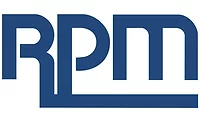RPM’s Second-Quarter Sales up 10.5%
MEDINA, OH – RPM International Inc. reported record sales, net income and diluted earnings per share for its fiscal 2018 second quarter ended Nov. 30, 2017. Sales increased 10.5% and net income of $95.5 million, or $0.70 per diluted share, compared to a year-ago net loss of $70.9 million, or loss of $0.54 per diluted share. The fiscal 2017 second-quarter results included a $188.3 million pre-tax ($129.2 million or $0.97 per diluted share, after-tax) impairment charge. The fiscal 2017 second-quarter results also included a charge of $12.3 million, or $0.09 per share, which had no tax impact, related to the decision to exit an industrial segment business in the Middle East.
For the second quarter, net sales of $1.32 billion were up 10.5% over the $1.19 billion reported a year ago. Organic sales improved 4.2% and acquisition growth added 4.7%. Foreign currency translation increased sales by 1.6%. Net income of $95.5 million compares to last year’s adjusted net income of $70.5 million. Earnings per diluted share of $0.70 in the current quarter, which included a $0.09 per diluted share tax benefit relative to last year’s tax rate, compare to an adjusted $0.52 per diluted share last year. Earnings per diluted share increased 34.6% from last year’s adjusted earnings per diluted share of $0.52, and increased 17.3% excluding the $0.09 per diluted share tax benefit. Income before income taxes (IBT) of $109.2 million compares to a loss before income taxes of $106.9 million reported in the fiscal 2017 second quarter. RPM's consolidated earnings before interest and taxes (EBIT) of $131.8 million compare to a consolidated loss before interest and taxes of $86.4 million reported in the fiscal 2017 second quarter. Excluding the year-ago charges, RPM’s consolidated EBIT for the fiscal 2018 second quarter improved 15.4% over $114.2 million in the fiscal 2017 second quarter. The EBIT improvement of 15.4% included the cost savings benefit in “Corporate/Other” expenses of $11.1 million from lower pension, healthcare, acquisition-related expenses and professional fees.
“We were very pleased with RPM’s results during the fiscal second quarter. Our strategically balanced business model performed as intended with strength in our industrial and specialty businesses offsetting weakness in our consumer segment. Sales growth was strong across all three of our business segments, with a balance of organic and acquisition growth. We are also seeing the benefits of last year’s product line acquisitions and cost reduction efforts on improved leverage, which more than offset higher raw material costs that have negatively impacted gross profit margins,” said Frank C. Sullivan, Chairman and Chief Executive Officer.
During the fiscal 2018 second quarter, industrial segment sales increased 11.0%, to $702.9 million from $633.4 million in the fiscal 2017 second quarter. Organic sales improved 5.4%, while acquisition growth added 3.3%.
“Our strong organic sales growth of 5.4% in the industrial segment was driven by North American roofing and those businesses providing polymer flooring to commercial and industrial markets. We also saw a slight rebound in our companies serving the oil and gas industry, which reported positive organic year-over-year sales growth for the first time in three years. We continue to see mixed results from our industrial businesses in Europe, while Latin American industrial operations, particularly in Brazil, continue to struggle. EBIT margins were negatively impacted by higher raw material costs and unfavorable transactional foreign currency exchange,” said Sullivan.
RPM’s fiscal 2018 second-quarter consumer segment sales increased 11.1%, to $415.4 million from $373.8 million a year ago. Organic sales increased 3.0%, while acquisition growth added 7.3%.
“During the quarter, we saw a sharp uptick in business from caulks and sealants products, as well as some international markets. The segment also benefited from last year’s acquisitions of Touch ‘N Foam in the U.S. and SPS in Europe. The decline in EBIT resulted from higher raw material costs and unfavorable manufacturing absorption and product mix,” said Sullivan.
Second-quarter sales for the specialty segment increased 7.4%, to $197.1 million from $183.6 million in the fiscal 2017 second quarter. Organic growth was 2.8%, while acquisitions added 3.8%.
“We experienced strong growth in many of our specialty segment product lines, particularly U.S.-based restoration service businesses, with higher than normal sales volumes into the hurricane impacted regions prior to and after the storms, as well as powder coatings and wood finishes, after overcoming lost sales from last year’s closure of an unprofitable European business and recent patent expiration. We were able to mitigate the negative impact of the patent expiration by retaining most of our larger customers,” Sullivan stated.
Looking for a reprint of this article?
From high-res PDFs to custom plaques, order your copy today!






